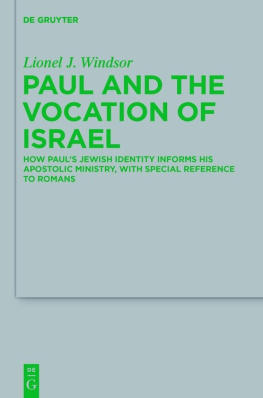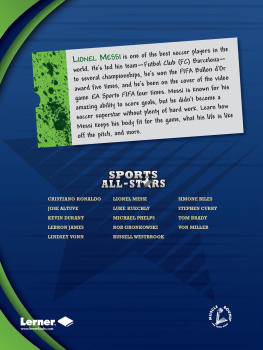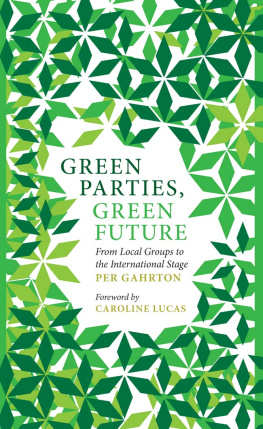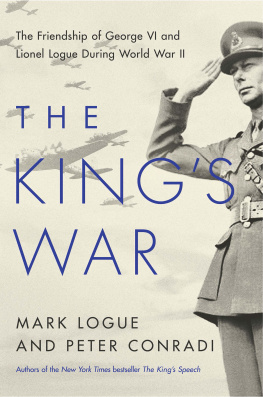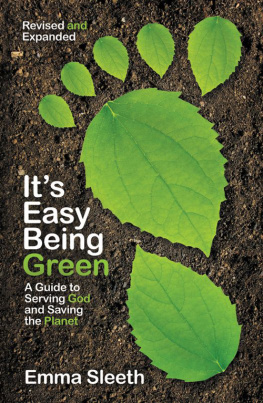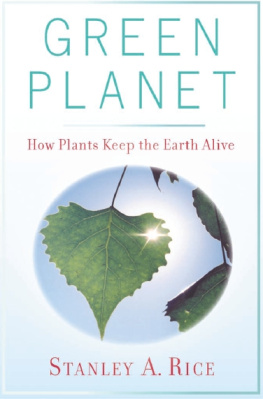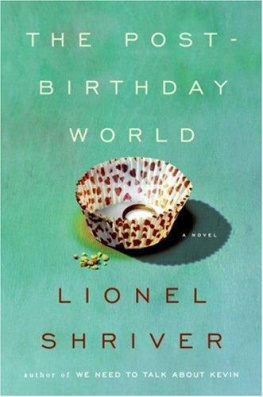About Matthias Media
Matthias Media is an independent Christian publishing company based in Sydney, Australia. To browse our online catalogue, access samples and free downloads, and find more information about our resources, visit our website:
How to buy our resources
- Direct from us over the internet:
- in the US: www.matthiasmedia.com
- in Australia: www.matthiasmedia.com.au
- Direct from us by phone: please visit our website for current phone contact information.
- Through a range of outlets in various parts of the world. Visit www.matthiasmedia.com/contact for details about recommended retailers in your part of the world.
- Trade enquiries can be addressed to:
- in the US and Canada:
- in Australia and the rest of the world:
Acknowledgements
The material in this book has appeared in various forms over the years. Id like to acknowledge and thank those who encouraged me and provided opportunities to preach or write on the topic: the organizers of the Mid-Year Conference of Campus Bible Study at the University of New South Wales; Sandy Grant at St Michaels Anglican Church in Wollongong; the students of the Evangelical Christian Union at Wollongong University; Loren Becroft, editor of the Australian Fellowship of Evangelical Students webSalt magazine; and Ian Carmichael and the editorial team at Matthias Media who encouraged and assisted me in turning it all into a book.
Id also like to give thanks for the life and influence of the late Professor Stuart Wenham, director of the Photovoltaics Centre of Excellence at the University of New South Wales. Stuart was a world leader in solar cell technology (photovoltaics). He was one of the key figures in making photovoltaics what it is today: a leading source of power generation in the world. Stuart supervised my engineering thesis at UNSW in laser technology for solar cell processing, and I worked for several years at Pacific Solar, an innovative solar research company that he had co-founded.
Sadly, not long before this book was published, Stuart died from melanoma. His funeral, held in the largest public auditorium at UNSW on 8 January 2018, was remarkable. It was full of anecdotes about his larger-than-life character, and accolades for his incredible achievements. Yet the message that came through at the funeral, again and again, was that Stuarts life was not defined by these achievements. Rather, his life was defined by his trust and hope in Jesus Christ. We heard, in Stuarts own words, that his research motivation was the challenge of using Science and Technology to try and make this world that God has given us a better place, not only for those less well off, but also for the sake of future generations through the preservation of our environment. The songs we sang, which were chosen by Stuart, constantly pointed us to Jesus. Long after the funeral, these words were still ringing in my ears:
I will not boast in anything,
No gifts, no power, no wisdom,
But I will boast in Jesus Christ:
His death and resurrection.
Why should I gain from his reward?
I cannot give an answer.
But this I know with all my heart:
His wounds have paid my ransom.
Stuart Townend, How Deep the Fathers Love, 1990.
1. The view from above
Almost 50 years ago, in 1972, the crew of the Apollo 17 space mission took the first full-view photo of planet Earth as they made their way to the moon. For the first time ever, humanity saw an image of the whole planet from afar. They saw the clouds, the land, the oceans sitting there: whirling, powerful, innocent, vulnerable. This view from above was emblematic of a revolution taking place in the hearts and imaginations of millions around the planet. The world was no longer being regarded as an endless vista of untapped resources and infinite possibilities. Instead, we began to realize how small, how fragile, and how very delicate our home really is. No longer were environmental issues confined to a few marginal voices. Together, we started to become very anxious about what we were doing to this lonely globe. Since then, this anxiety has only increased. Fifty years on, our news feeds are full of stories relating to our environment and ecological concerns: sustainability, climate change, species diversity, air pollution, soil contamination, deforestation, landfill and radioactive waste, to name but a few.
How do you feel about these issues? Are you worried? Distracted? Anxious? Complacent? Resigned? Apathetic? Confident? Skeptical?
This is a book about how the Bibles teaching relates to environmental issues. If youre a Christian, I hope this book will encourage you to think and act even more in line with Gods word. If youre not a Christian, I hope this book will help you to understand what the Bible teaches about Gods plan for our world. I pray that you will see that there is wonderful, good news for you and for our worldeven in the midst of the bad news.
In the late 1990s, before I commenced my formal Christian ministry training, I worked as a solar energy engineer. Ive preached on environmental issues several times over the years. Over that time, Ive noticed that the general consensus on ecological issues has changed. In the 90s, people who cared about the environment were on the fringe, often seen by the majority as a bit weird and alternative. Not long after that, environmental issues became a little more fashionable. Now, its fair to say that ecological consciousness is part of the air we breathe. Everyone cares about the environment nowits not even fashionable any more; its just a given.
The way Christians have approached the issue seems to have reflected these general trends. Take, for example, The Green Bible. The preface states:
Many Bibles, called red-letter editions, have Jesus direct statements printed in red. We have adapted this practice to introduce the green-letter edition. In it we highlight the rich and varied ways the books of the Bible speak directly to how we should think and act as we confront the environmental crisis facing our planet Essays from respected conservationists and theologians highlight important themes related to Gods care of creation and show how to read the Bible through a green lens. Cumulatively, the essays lay out an excellent and broad vision for the central calling on Christian lives to care for Gods creation.
But rather than approaching Gods word through the green lens of environmental concerns, lets start the other way round: lets approach environmental concerns through the lens of Gods word. Why? If we really want to come to grips with environmental concerns, we actually need to take a step back first. We need to see the true view from above. We need to get a firmer grasp on the Bibles whole messagefrom beginning to end. We first need to understand God, his Son Jesus Christ, and his purposes for us and for our world. Once we do that, we can understand more clearly how best to think and act in regard to the ecological issues that are all around us. Thats what this book is all about.
Clearing away the isms
The way we think about, talk about and act towards our world is profoundly shaped by the way we view our world. But our view of the world isnt always obvious, even to us. We seldom stop to consider what our view of the world really is, or where this view has come from. In fact, we often hold various contradictory views of the world in our heads all at once. This is true of everyone, including Christians. We can easily assume that our particular stance on environmental issues is biblical, when it may simply be a view weve absorbed from somewhere elseparents, teachers, friends, movies, celebrities, social media news feeds, etc.


